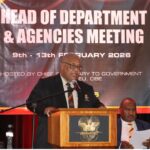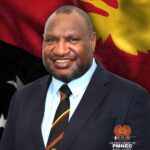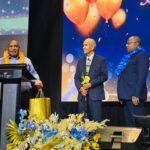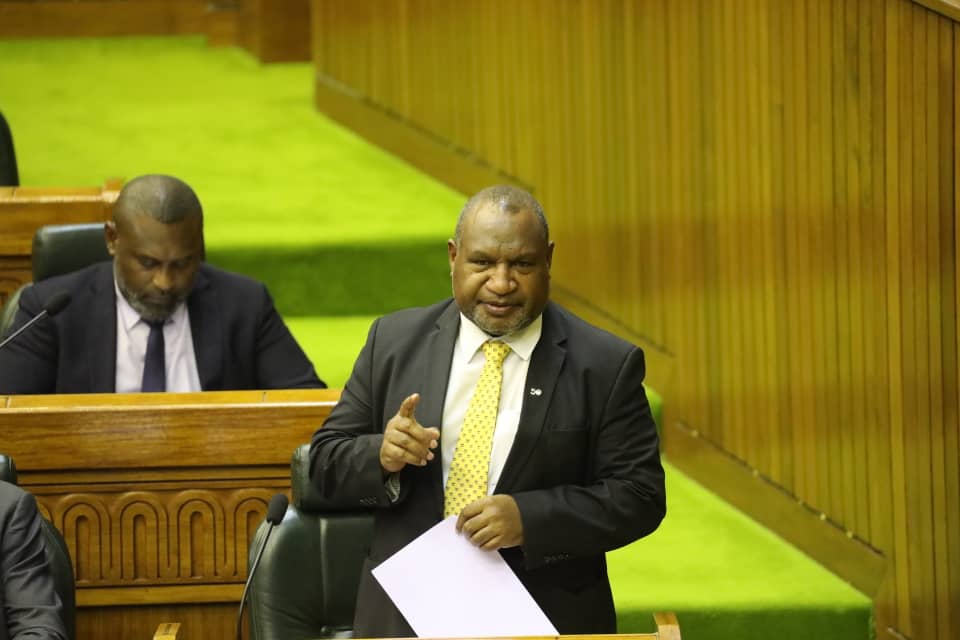Prime Minister Hon. James Marape has praised Parliament’s passage of the landmark Disability Services Bill 2025, describing it as one of the most significant legislative milestones in Papua New Guinea’s 50 years of Independence.
The Bill, introduced by Minister for Community Development, Religion and Youth Hon. Jason Peter, was passed unanimously with a vote of 67–0, signalling strong bipartisan support for inclusive development and long-overdue recognition of the rights and dignity of persons with disabilities.
In his heartfelt remarks during debate on the Bill, Prime Minister Marape reflected on the human significance of the legislation and the long journey towards recognising the needs of over 1.5 million Papua New Guineans — around 16% of the national population — living with some form of disability.
“For the first time, we now have a piece of legislation that formally embraces, protects, and involves our citizens living with disabilities,” said Prime Minister Marape. “It is not just law. It is a statement of compassion, a statement of national maturity, and a powerful message that every citizen matters in this great nation of ours.”
He shared his recent experience of meeting representatives of disabled persons from across the country, including from all 21 provinces and the Autonomous Region of Bougainville.
“About four weeks ago, I had the distinct honour of being in a room with the leaders of our disabled community — some blind, some partially paralysed, others in wheelchairs — and among them was my own schoolmate from Kavieng. They all said to me, ‘Prime Minister, you are the first Prime Minister we are asking directly: bring a law for our people.’ Today, I am proud that we have delivered.”
Prime Minister Marape acknowledged Minister Jason Peter for his tireless leadership in championing the Bill, and thanked past ministers and departments who had contributed to the foundation for this legislative breakthrough.
“Let us build schools, roads, and public infrastructure that are accessible to those who cannot walk, cannot see, cannot hear. Let us honour the spirit of this Bill by being inclusive in how we serve our people,” he said.
Background: Recognising the Rights of the Forgotten
In tabling the Bill, Minister Jason Peter said the Disability Services Bill 2025 seeks to domesticate Papua New Guinea’s commitments under the United Nations Convention on the Rights of Persons with Disabilities (CRPD), which the Government ratified in 2013.
“This Bill is about the welfare and wellbeing of over 1.5 million people in our country who have been marginalised and forgotten for far too long,” Minister Peter told Parliament. “It provides a legal framework for protecting their rights, delivering services, and ensuring they are included in national development plans.”
Minister Peter said the Bill was the culmination of years of policy groundwork by the Department for Community Development and Religion, which led to the development of the National Disability Policy and nationwide consultations with stakeholders and advocacy groups.
“It has taken a long time to reach this moment. But today we say to all persons with disabilities — whether blind, deaf, or living with physical or intellectual challenges — that your government sees you, values you, and is legislating for you,” he said.
He thanked Prime Minister Marape for his personal support and urged all Members of Parliament to take ownership of the law through proper funding and inclusive service delivery in districts and provinces.
“This is a legacy Bill. It is a Bill that will bring light to those who have long lived in the shadows,” Minister Peter declared.
A National Commitment to Inclusivity
The Prime Minister also underscored the importance of honouring PNG’s obligations under the CRPD by ensuring the new law is implemented meaningfully through funding, policy alignment, and inclusion at all levels of government.
“This Bill is more than compliance. It is a national commitment that no one will be left behind. It is our 50th anniversary gift to the most vulnerable among us — a law that protects them, involves them, and allocates resources to support them so they may live with dignity in their own country.”
He concluded by expressing love and solidarity with every person living with a disability in Papua New Guinea:
“On behalf of my wife Rachel, our children, the people of Tari-Pori, and our entire country, I want to say: we love you, we care for you, and we recognise you. You are equal citizens of our country. This is your law. This is your moment.”






